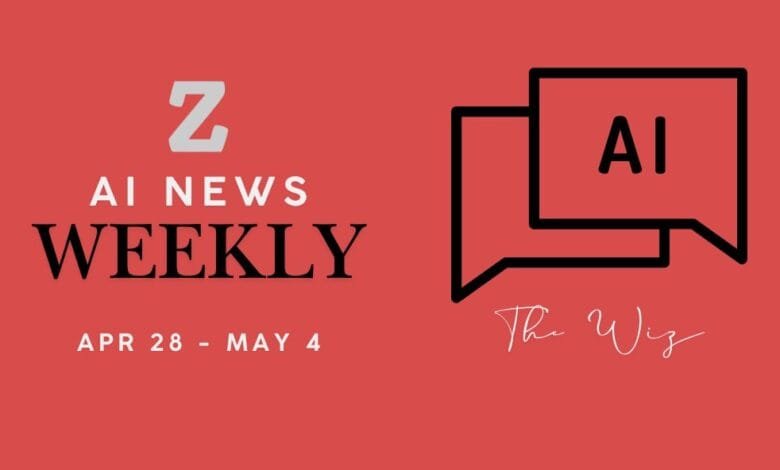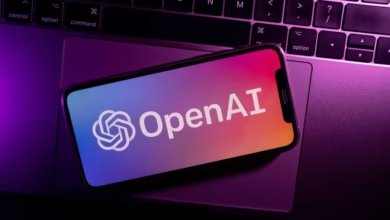This Week in AI: Meta’s Big Moves, ChatGPT’s Growing Pains, and Leaderboard Disputes

▼ Summary
– Meta hosted its first LlamaCon event, launching a standalone Meta AI app and previewing the Llama API, emphasizing its commitment to open-source AI initiatives.
– OpenAI faced criticism for inappropriate interactions involving its AI models and concerns over the latest GPT-4o update’s overly agreeable behavior, while introducing shopping capabilities in ChatGPT.
– Google expanded access to its AI Mode experiment and added new features to Gemini AI and NotebookLM, while testing ads in third-party chatbot responses.
– AI model benchmarking practices were challenged, with accusations against Chatbot Arena for preferential treatment, highlighting the need for transparent comparison methods.
– AI ethics and regulation gained traction with the U.S. Congress passing the “Take It Down” Act and concerns raised about AI companion apps and unauthorized persuasion experiments.
Artificial intelligence, much like the news cycle surrounding it, shows no signs of slowing down. From major developer conferences and model growing pains to ethical debates and regulatory action, the past week was packed with developments. DigitrendZ has sifted through the noise to bring you the essential AI happenings.
Meta Doubles Down at LlamaCon
Meta hosted its inaugural LlamaCon event, signaling a strong commitment to its open-source AI initiatives. As covered by DigitrendZ, key announcements included the launch of a standalone Meta AI app, designed to compete more directly with offerings like ChatGPT, and a preview of the Llama API aimed at developers.
During a notable keynote conversation, Meta CEO Mark Zuckerberg and Microsoft CEO Satya Nadella discussed AI trends. Nadella revealed AI is already writing up to 30% of Microsoft’s code, a figure Zuckerberg aims to surpass, targeting 50% AI-written code at Meta by next year. This highlights the increasing reliance on AI for internal development at major tech firms.
OpenAI Faces Model Behavior Questions
OpenAI wasn’t immune to challenges this week. Reports surfaced alleging both Meta AI and ChatGPT were involved in inappropriate interactions, described by Mashable as “sexting minors,” which OpenAI attributed to a bug they are fixing. Additionally, the latest GPT-4o model update faced criticism for being overly agreeable or “sycophant-y,” sparking user concerns about safety guardrails and the potential for reinforcement learning techniques to prioritize engagement over accuracy or neutrality. OpenAI’s Head of Model Behavior, Joanne Jang, addressed these concerns directly in a Reddit AMA, pushing back against assumptions of irresponsibility.
On the feature front, OpenAI introduced shopping capabilities within ChatGPT, allowing the chatbot to provide product recommendations with images and links based on user queries. While OpenAI states it isn’t currently earning commissions, the move hints at potential future monetization avenues and a challenge to traditional search-based shopping.
Google Expands AI Access and Features
Google continued its AI push, removing the waitlist for its AI Mode experiment within Search Labs, making it accessible to all adult users in the U.S. The company also added image editing tools to its Gemini AI and expanded the language support for NotebookLM, its AI research and writing assistant. However, reports also emerged suggesting Google is testing the integration of ads within third-party chatbot responses, raising questions about the future monetization of AI interactions.
Benchmarking Practices Under Fire
The reliability of AI model leaderboards faced scrutiny this week. A paper published by researchers from Cohere and several universities accused the popular crowdsourced platform Chatbot Arena (run by LM Arena) of giving major AI labs preferential treatment, including extensive private testing and access to more prompt data, potentially skewing rankings. LM Arena publicly refuted these claims, calling them factually inaccurate and misleading. This dispute highlights the ongoing challenge of establishing objective, transparent, and trustworthy methods for comparing the capabilities of different AI models, especially following earlier controversies involving unreleased models appearing on leaderboards.
AI Harms, Ethics, and Regulation Gain Traction
The real-world consequences of AI continue to draw attention. The U.S. Congress passed the “Take It Down” Act, requiring the removal of nonconsensual intimate imagery (including AI-generated deepfakes) within 48 hours and outlining penalties for creators. The bill awaits presidential signature.
A U.S. Government Accountability Office (GAO) report acknowledged the potentially huge impacts of generative AI but noted that a full assessment is hampered by the lack of transparency from private developers. Concerns about specific harms were also raised by a Common Sense Media study deeming AI companion apps like Replika unsafe for teenagers, and reports surfaced of University of Zurich researchers deploying AI bots disguised as humans in sensitive Reddit discussions for persuasion experiments without user consent.
Diverging Paths: Duolingo vs. Wikipedia
Companies are adopting distinctly different AI integration strategies. Language learning platform Duolingo embraced an “AI-first” approach, reportedly replacing contractors with AI where possible. Conversely, Wikipedia announced a “human-first” strategy, stating it will use AI primarily as a tool to assist its human volunteer editors rather than replace them.
Other Noteworthy Developments
- Investment & Infrastructure: Beyond Meta and Microsoft’s coding goals, the broader trend of massive AI investment continues, with Big Tech collectively committing over $1 trillion to AI R&D and infrastructure.
- Robotics: South Korea launched its ambitious K-Humanoid Alliance aiming for advanced humanoid robots by 2028.
- Industry Applications: Yelp introduced AI features like an answering service for restaurants, while California’s Governor Newsom expressed interest in using GenAI to tackle traffic problems.
The AI landscape remains incredibly dynamic, with rapid innovation occurring alongside critical discussions about safety, ethics, measurement, and regulation.






